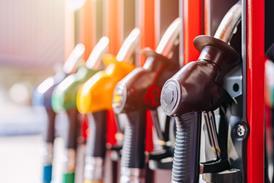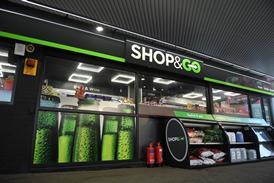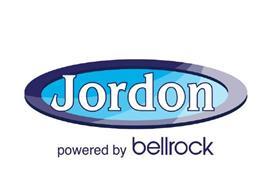When’s the last time you cleaned out your tanks? If the answer is not within the last few years then it could be time to act now - and avoid disaster later.
Industry experts seem to agree that the biggest challenge for those working with tanks and pipes is responding to the government’s Renewable Transport Fuel Obligation (RTFO), which was introduced last April.
Tank cleaning specialist David Plumb & Co says there are major issues involved. According to director Nigel Plumb, biofuels - both bioethanol in petrol as well as biodiesel - are very powerful cleaning agents. So powerful that they can clean all the dirt and contamination from tanks and pipes and deposit it into a system’s filters.
Plumb says the experience in the US is that when biofuels are first used, the dirt cleaned out by them will clog filters regularly, even to the point of closing off the fuel flow altogether. This can result in a new filter as well as the expense of an engineer’s call out fee, and is a problem that will be repeated until the system is completely cleaned out. Plumb explains: "This will affect all service stations in the next few years as the government has said that all petrol and diesel sold in the UK will rise from the current 2.5% to 5% biofuel content by 2010. A simple thorough clean will dramatically reduce the chances of this occurring.
"Apart from questions about exactly how environmentally-friendly they really are, up to now the concern over biofuels has been the growth of jellyfish-like globules inside tanks that are caused by bacteria feeding on the fuel itself. However, it now looks like this can be cured by additives. But the only cure for a fuel that cleans out the system is to clean it out first."
According to Plumb, on average the whole cleaning process costs about £5,000 per forecourt. For safety reasons the forecourt has to be closed to customers for part of the process, but Plumb says this can be kept to less than one working day, or even under two hours if only a single tank is cleaned. The company starts by draining any residual fuel before driving out any remaining vapour to leave the tanks safe to work on. The tank is cleaned manually.
Over at Torex, there’s agreement that retailers need to be more proactive than ever when it comes to looking after their tanks. Huw Carey, Torex industry and product manager - petroleum and convenience solutions, backs up Plumb’s views, saying: "The main challenge for the future in this area is biofuels. The problem they bring is the bacteria, and it causes problems when biofuel is put into tanks and pipes that haven’t been cleaned properly."
Carey warns that problems can occur even when only small amounts of biofuel are involved - including the present legal requirement under the RTFO of 2.5% average of all fuel sold. He adds: "It’s a breeding ground for bacteria, it can cause the organisms that look like jellyfish to grow inside tanks. A little investment now really can save a lot of expense in the future." Carey says it’s possible to put biocide into the tanks, which kills the bacteria - but the best option is prevention. He adds: "Get rid of any fuel in the tank and sludge from the old fuel and make sure the tank is extremely clean before you put any biofuel in there. Then maintain constant management of water levels and any sludge. It’s a lot less expensive than waiting and then dealing with blocked filters. Or, worse, having a customer complain the fuel has caused problems with their car."
LCM Environmental reports that it has seen business rise by 50% in the last year due to biofuel-related problems. Mark Orr, the company’s corporate development and health and safety director, says: "This has been the biggest change over the past year; people are wanting tanks cleaned or want to put some form of prevention in place. Diesel tanks tend to be worse than petrol ones because diesel is dirtier. There’s a big call at the moment for sludge removal services."
LCM has teamed up with Petroman and Tanknology to offer a range of services related to fuel sampling, water removal, tank inspection and tank de-sludging. This includes Bio-Klenz, a fuel additive designed to be used as a preventative treatment. The product has been in use for many years, mainly for treating marine and heavy diesel vehicles. The company describes Bio-Klenz as "a detergent-based additive which when mixed with diesel will eradicate and absorb any water within the storage tank, effectively suffocating and killing the diesel bug". After application Bio-Klenz continues working. LCM says the end result is that the diesel, water and diesel bug within the tank become one combined mixture of diesel and Bio-Klenz. This is then dispensed from the tank in the normal way - cleaning lines and filters as it goes. It is then dispensed into customers’ fuel tanks, where again it will clean and has no detrimental effect on the quality and effectiveness of the fuel within the vehicle fuel system and combustion process".
Bio-Klenz is administered as an initial tank treatment and, for tanks with severe contamination, at a ratio of 1:500. It is recommended to be used as a preventative maintenance treatment once every two to three months. LCM also offers tank monitoring device Petroscope, a remotely-operated camera for carrying out inspections. According to Orr, Petroscope was used 30 times in 2006, 60 times in 2007, and about 120 times in 2008.
Meanwhile Cyrus Energy offers the fuel biocide product Eradicate, which it says is a simple cost-effective solution for killing off the biofuel bugs within 24 hours of treatment.
Torex’s Carey says his company has also seen a rise in the number of contamination instances reported by retailers. He adds: "We’ve seen a lot of these jellyfish-like growths. And they can be big enough to block a suction pipe running from the tank to the pump. We’ve definitely seen an increase in these problems over the past two years." Of course, another reason for keeping an eye on your tanks - and pipework - is to avoid costly fines for any leaks or pollution. Carey explains: "Any spillage and you can end up with a hefty bill, so wetstock management is essential. Any 15- to 20-year-old tanks will be single skin and they rot from the outside, as well as from the inside due to condensation. Cleaning up any environmental damage can be very expensive."
Martin McTague, managing director of wetstock monitoring company Edensure, adds: "Tank leaks are still pretty rare and a lot of people just cross their fingers and hope for the best. But if they go undetected for a long period of time they can leave retailers facing very steep bills."
According to McTague, there are about 50,000 tanks on UK forecourts, and about 500 per year experience a leak. Each one could potentially cost up to £500,000 in cleaning-up costs. He adds: "A lot of retailers consider their site their pension. But prices can really be affected by any underground contamination. And if any of the tanks are near a water extraction point - as about 3% of tanks in the UK are believed to be - then they are considered to be high risk, so the clean-up costs can be very high." Edensure’s systems can detect tank leaks, even small ones, by monitoring the fuel delivered and dispensed. Edensure, which was recently bought by beer-flow monitoring company Brulines, supplies about 130 sites in the UK and expects to announce more contracts this year.
Looking ahead, McTague warns there are problems on the horizon with biofuels and tank monitoring. He says: "We’re hearing reports of tank gauges being affected - they rely on a float and if this gets furred up with the byproducts of biofuel it can affect their weight, causing them to sink, which can therefore affect the accuracy of the reading. This is a problem that will only get worse as the percentage of biofuel rises."
On the pipe front, PetroTechnik claims its UPP underground pipework system is designed to stop any risk of leaks. It describes the system as a non-corrodible, non-conductive, flexible pipework and containment system for the transfer of flammable liquids underground. The company says that at the heart of the system is "highly efficient electrofusion, which creates a seamless leak-tight assembly between pipe fittings and sumps", therefore removing any possible leak paths.
The company, which supplies underground tanks through sister company Cookson & Zinn, is continuing to expand and recently opened a new UPP manufacturing facility in Mumbai, India.
----
=== Renewable Transport Fuel obligation (RTFO) ===
The RTFO was introduced on April 15, 2008 and stated that fuel suppliers must ensure that all fuel sold on UK forecourts contains at least 2.5% biofuel.
In October 2008 the Transport Minister Andrew Adonis announced plans to revise the government’s biofuels targets while ploughing more money into research in the area. He said the rate of increase in the use of biofuels should be slowed to 0.5% a year, and that the level for the RTFO should reach 5% by 2013-14, instead of the current target of 2010-11.
A consultation document was published asking for views on the government’s proposal. It also wanted views on the addition of new eligible fuels and longer term issues with regard to the implementation of the Renewable Energy Directive and the Fuel Quality Directive. The closing date was December 17, 2008 and, at the time of going to press, the Renewable Fuels Agency (RFA) was expecting a summary of the responses to be published in early 2009.
More information is available at [http://www.dft.gov.uk/rfa]























No comments yet